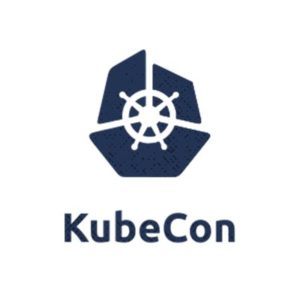Dive Deep into the Possibilities of Multi-Cloud at KubeCon 2018
jasonbarnhill

KubeCon is almost here!
As the Cloud Native Computing Foundation’s flagship community event marks a return to Seattle next week, Rackspace is excited to participate and support the community as a first-time sponsor of KubeCon + CloudNativeCon North America.

Kubernetes and the entire cloud native community have demonstrated exceptionally strong growth in a relatively short time.
Consider these metrics:
- 10x growth in KubeCon attendees in just three years (from 500 in San Francisco November 2015 to more than 5,000 expected attendees next week in Seattle)
- 100 percent more contributors to CNCF projects in last six months (since KubeCon Europe in May)
- 50 percent increase in certified Kubernetes solutions in last six months
So, with all this buzz and excitement building towards KubeCon North America 2018, here's what we're most excited about learning and experiencing next week in Seattle:
The possibilities of multi-cloud
One of the great promises of Kubernetes is multi-cloud portability of applications. Kubernetes is designed to run on any cloud or bare-metal environment, alleviating the need for users to concern themselves with the underlying infrastructure. This is a powerful and important feature, as it allows organizations the flexibility to run applications across environments, tailoring their deployments to their specific needs.
As Kubernetes has matured (more on that below), we're looking forward to learning about the experiences of companies (and Rackspace partners) like Google, Red Hat and VMware deploying and implementing multi-cloud Kubernetes environments. How did they choose this path? What challenges have they faced? How have they solved those challenges?
The Kubernetes ecosystem
A critical component to the growth of Kubernetes and the entire cloud native community has been the development and maturation of the ecosystem of open-source technologies surrounding Kubernetes. These services, including Prometheus, Envoy, Fluentd, Helm, Harbor and others, allow organizations to build, run and scale applications using Kubernetes by providing the necessary logging, monitoring, networking and container registry capabilities (among others) that any application needs to run and scale.
The continued growth and maturation of these services is critical to continued growth in Kubernetes, and we are looking forward to learning how companies are using these technologies in their own deployments. Dozens of scheduled speaking sessions are focused on these services, including tracks focused on observability, security, identity, policy, networking and operations.
Crossing the chasm?
I've mentioned maturity multiple times already in this post — for good reason. As the community has grown and the hype has increased, the dynamics of the event and the conversations have evolved, as well. In the early days, attendees were mostly contributors and early adopters, collectively trying to figure out how to make Kubernetes work. That initial phase quickly transitioned to include “tire kickers,” trying to learn and understand “What is Kubernetes?” and “Should I use it?”
Now we're seeing more actual users and adopters who are running production workloads on Kubernetes. This is a great development for the community, as it demonstrates a level of stability, maturation and, ultimately, trust, in these technologies.
Kubernetes and multi-cloud expertise
Attending KubeCon caps an exciting year for Rackspace in the cloud native world. In May, we announced the general availability of Rackspace Kubernetes-as-a-Service, a Certified Kubernetes solution. This announcement was quickly followed by the launch of the industry’s first pay-as-you-go Kubernetes private cloud, delivered in partnership with HPE.
In June, we joined the Cloud Native Computing Foundation as Silver members, furthering our commitment to advancing open source computing, a mission we began in 2010 as the co-founder of OpenStack.
Finally, the CNCF recognized Rackspace as a Certified Kubernetes Service Provider, placing Rackspace in a tier of pre-qualified and vetted service providers recognized by the CNCF for their “deep experience helping enterprises successfully adopt Kubernetes.”
Want to talk Kubernetes or perhaps learn more about how Rackspace can help solve your cloud challenges? Stop by the Rackspace booth, S35, at KubeCon + CLoudNativeCon North America 2018 next week in Seattle. You’ll be able to meet with our Kubernetes and cloud experts, including our Senior Director of Product, Certified Kubernetes Administrators and other certified cloud experts.
Look forward to seeing you in Seattle!

Recent Posts
ViVE 2024 Attendees Explored the Leading-Edge of Healthcare Technology in Los Angeles
March 5th, 2024
How to Accelerate Your Microsoft 365 Copilot Launch with FAIR and Rackspace Technology
February 27th, 2024